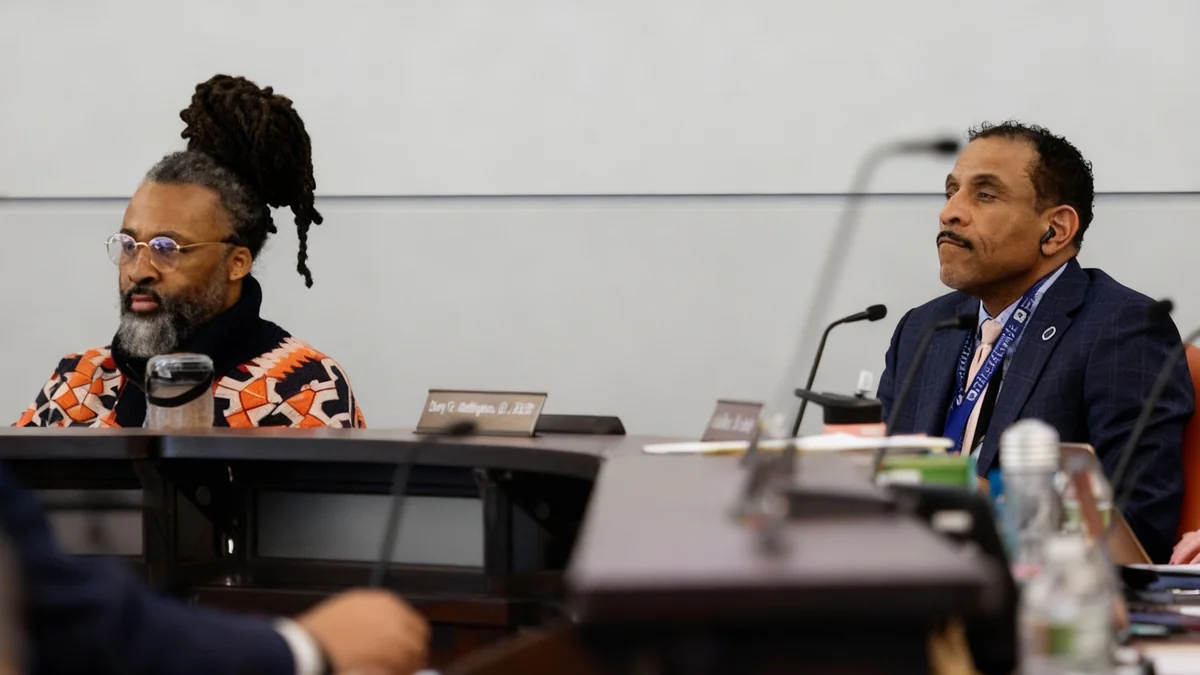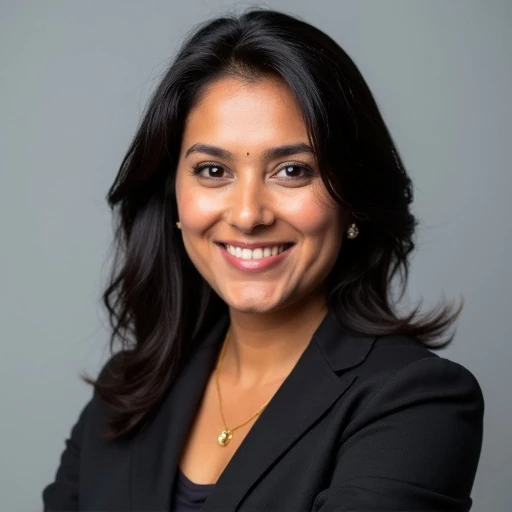The Philadelphia School Board recently held a public hearing, drawing numerous community members who voiced concerns on critical issues. These topics included potential school closures, the strength of the district's wellness policy, and the ongoing lack of libraries and librarians across many schools. The board listened intently, without direct responses to individual speakers, as is customary for these hearings.
Key Takeaways
- Community members oppose school closures and co-locations.
- Parents and advocates want stronger wellness policies, including guaranteed bathroom breaks and recess.
- There is a significant lack of libraries and librarians in district schools.
- Olney High School faces challenges with broken elevators affecting student access.
Master Facilities Plan and School Closures Draw Opposition
A major point of contention at the hearing was the delayed release of the district's master facilities plan. This plan is expected to include recommendations for school closures or co-locating schools. Many speakers urged the board to reconsider such actions, emphasizing the negative impact on communities.
Katy Egan, a member of Stand Up for Philly Schools, expressed strong disapproval of the current process. She stated, "We want a facilities plan, but this process isn't it." Egan believes the current approach focuses too much on managing real estate assets rather than ensuring every student has access to an excellent neighborhood school. She warned that a poorly designed facilities process could lead to a "death spiral" for public schools, driving students out of the system.
"No one wants schools closed," said Lisa Haver, a retired district teacher. "The children are your constituents."
Fact: State Funding Shortfall
Pennsylvania public schools are currently missing over $3 billion in state payments due to a budget impasse. This funding gap significantly impacts the district's ability to address facility needs and other critical areas.
Calls for Transparency and Community Input
Former school board member Cecelia Thompson urged the board to release school closing recommendations sooner. This would give communities ample time to plan and advocate for their schools. Thompson also stressed the importance of ensuring any plan makes schools compliant for individuals with mobility issues and disabilities.
Leah Clouden, a community member, criticized the district's handling of existing school buildings. She observed children sitting in hallways during a recent school visit. Clouden stated, "Closing schools that have been willfully neglected... is your fault." This sentiment reflects a broader concern about the district's stewardship of its properties, including vacant schools.
Wellness Policy Sparks Debate on Student Needs
The district's wellness policy, scheduled for a vote later this month, generated significant discussion. Parents and members of the advocacy group Lift Every Voice shared both appreciation and concerns regarding the policy's strength. A key demand from the group is guaranteed bathroom and water breaks for students, along with an end to silent lunches.
Saxon Nelson, a district parent, voiced strong support for guaranteed breaks. She noted that children would be "a lot better off if they had the right to pee, poop, drink water, and move their bodies." Nelson urged the board to pass a policy that truly serves the children's best interests.
Background: The Wellness Policy
For over a year, Lift Every Voice has actively lobbied for the district to guarantee basic needs like bathroom and water breaks for students. The current draft of the wellness policy does not include these explicit protections.
Superintendent Addresses Concerns
Superintendent Tony B. Watlington Sr. acknowledged the community's concerns about recess, bathroom breaks, and water. He expressed confidence that the district can reach an "appropriate thinking, collectively" on these issues. Watlington highlighted the board's role in setting frameworks, with staff responsible for day-to-day school operations.
He referenced a visit to Finland, where schools prioritize recess every hour. Watlington emphasized the importance of empowering teachers in their classrooms. He also stated that he sees very few cases of children being unable to access bathrooms due to medical issues.
The Critical Need for School Libraries and Librarians
A recurring theme throughout the hearing was the severe lack of school libraries and certified librarians across the district. Students, parents, and teachers spoke passionately about this issue, highlighting its impact on literacy and academic preparedness.
Rayne Adams, a 7th-grader, shared her love for reading and the challenge of not having a school library. She believes more libraries and librarians would help more children reach grade-level reading proficiency. Lauren Popp, a parent of elementary school children, echoed this, stating that without libraries, children are "unprepared for high school and college."
Staggering Statistics
Philadelphia's library ratio is approximately 1 librarian for every 23,000 students. This stark figure contrasts sharply with suburban districts that often have ample library resources.
Gregory Vogler, a city resident and librarian in a suburban district, described feeling like he lives "a double life." His workplace has robust library resources, while his home district has almost none. Vogler stressed that "a librarian does far more than check out books" and is crucial for literacy support, especially in a city where two out of three children cannot read at grade level by fourth grade.
Deborah Grill, a retired teacher, urged the board to ensure every school has a certified librarian and a functional library. She noted that even schools that have managed to establish libraries often lack professional staff.
Infrastructure and Staffing Challenges
Olney High School staff brought forward pressing concerns about broken elevators. Ella Komita Moussa, a teacher for autistic support students, explained that frequent elevator outages create an "inequitable learning environment." She shared that she constantly feels she is "fighting for inclusion," and broken elevators work against that goal.
Another Olney teacher showed the board ointment she uses for her ankles due to walking up four flights of stairs when elevators are out of service. A petition demanding elevator repairs was presented, detailing how students needing crutches or wheelchairs could not access classes on higher floors from October 13 to November 1.
- Speech Language Pathologist Shortage: Amy Eckert, a district speech language pathologist, reported 20 unfilled positions district-wide. She noted a 90% increase in kindergarteners needing speech services this year.
- Grade Concerns: Giselle Arthur, a parent at Martin Luther King High, raised concerns about "padding/falsification of grades" and a lack of academic support, including missing teachers for core subjects.
- Exclusionary Practices: Former board member Mallory Fix-Lopez criticized the district's "exclusionary practices," citing the algebra requirement for Masterman applications, which most K-8 schools do not offer.
Nicole Hunt, president of Local 634, the union representing cafeteria workers, urged the board to prioritize funding for public education over charter schools. She emphasized the importance of bringing joy to schools and ensuring all children have access to a quality education.





